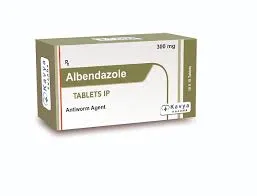- Afrikaans
- Albanian
- Amharic
- Arabic
- Armenian
- Azerbaijani
- Basque
- Belarusian
- Bengali
- Bosnian
- Bulgarian
- Catalan
- Cebuano
- Corsican
- Croatian
- Czech
- Danish
- Dutch
- English
- Esperanto
- Estonian
- Finnish
- French
- Frisian
- Galician
- Georgian
- German
- Greek
- Gujarati
- Haitian Creole
- hausa
- hawaiian
- Hebrew
- Hindi
- Miao
- Hungarian
- Icelandic
- igbo
- Indonesian
- irish
- Italian
- Japanese
- Javanese
- Kannada
- kazakh
- Khmer
- Rwandese
- Korean
- Kurdish
- Kyrgyz
- Lao
- Latin
- Latvian
- Lithuanian
- Luxembourgish
- Macedonian
- Malgashi
- Malay
- Malayalam
- Maltese
- Maori
- Marathi
- Mongolian
- Myanmar
- Nepali
- Norwegian
- Norwegian
- Occitan
- Pashto
- Persian
- Polish
- Portuguese
- Punjabi
- Romanian
- Russian
- Samoan
- Scottish Gaelic
- Serbian
- Sesotho
- Shona
- Sindhi
- Sinhala
- Slovak
- Slovenian
- Somali
- Spanish
- Sundanese
- Swahili
- Swedish
- Tagalog
- Tajik
- Tamil
- Tatar
- Telugu
- Thai
- Turkish
- Turkmen
- Ukrainian
- Urdu
- Uighur
- Uzbek
- Vietnamese
- Welsh
- Bantu
- Yiddish
- Yoruba
- Zulu
Dec . 09, 2024 16:30 Back to list
Exploring the Benefits and Uses of Garamycin Sulfate in Medical Treatments
Garamycin Sulfate An Overview of Its Uses, Mechanisms, and Applications
Garamycin sulfate, scientifically known as gentamicin sulfate, is an aminoglycoside antibiotic extensively used in medical practice to treat various infections caused by gram-negative bacteria. First introduced in the 1960s, gentamicin has remained a vital component in clinical settings due to its efficacy, particularly in treating severe infections when other antibiotics might fail.
Mechanism of Action
The mechanism of action of garamycin sulfate revolves around its ability to inhibit bacterial protein synthesis. It achieves this by binding to the 30S ribosomal subunit of bacteria, disrupting the translation process. This inhibition leads to the production of nonfunctional proteins, ultimately resulting in bacterial cell death. This bactericidal effect makes garamycin sulfate a valuable option in treating serious infections, especially in cases involving antibiotic-resistant strains of bacteria.
Clinical Uses
Garamycin sulfate is particularly effective against a range of gram-negative bacteria, including *Escherichia coli*, *Klebsiella pneumoniae*, and *Pseudomonas aeruginosa*. Because of this broad-spectrum activity, it is often employed in the treatment of
1. Urinary Tract Infections (UTIs) Garamycin sulfate is used in cases of complicated UTIs, especially when caused by resistant organisms. 2. Respiratory Tract Infections It is prescribed for pulmonary infections, particularly in patients who are hospitalized or immunocompromised.
3. Septicemia Gentamicin is often part of empirical therapy for septicemia, given that it can act swiftly against a wide array of potential pathogens.
5. Topical Applications Beyond systemic infections, gentamicin sulfate is frequently found in topical formulations for wound care and infections, especially in burns or post-surgical sites.
garamycin sulfate

Pharmacokinetics and Administration
Garamycin sulfate can be administered through various routes, including intravenous (IV), intramuscular (IM), and topical formulations. The route of administration often depends on the severity of the infection and patient-specific factors. The antibiotic is typically distributed widely throughout the body, including tissues and fluids, but its penetration into certain locations, such as the central nervous system, is limited.
Due to its renal clearance, regular monitoring of kidney function is crucial during treatment, as nephrotoxicity is a significant concern with aminoglycosides. Patients receiving gentamicin are often monitored for serum drug levels to avoid toxicity and ensure therapeutic efficacy.
Side Effects and Considerations
While garamycin sulfate is a powerful antibiotic, it is not without potential side effects. The most notable adverse effects include
- Nephrotoxicity Kidney damage can occur, particularly with prolonged use or higher doses. - Ototoxicity Gentamicin can also affect the auditory and vestibular systems, leading to hearing loss or balance issues.
- Neuromuscular Blockade In some cases, it can cause weakness or respiratory paralysis, especially in patients with pre-existing neuromuscular disorders.
Given these risks, gentamicin is typically used with caution, particularly in vulnerable populations such as the elderly or those with pre-existing kidney issues.
Conclusion
In summary, garamycin sulfate (gentamicin sulfate) serves as a critical antimicrobial agent in clinical practice, prized for its ability to combat serious bacterial infections. With a well-established mechanism of action and a broad spectrum of activity, it remains a cornerstone in the treatment of various infections. However, due to its potential side effects, careful management and monitoring are essential in ensuring patient safety and treatment efficacy. The ongoing challenge of antibiotic resistance underscores the importance of responsible use of such powerful medications, ensuring they remain effective in the global fight against infectious diseases.
-
Guide to Oxytetracycline Injection
NewsMar.27,2025
-
Guide to Colistin Sulphate
NewsMar.27,2025
-
Gentamicin Sulfate: Uses, Price, And Key Information
NewsMar.27,2025
-
Enrofloxacin Injection: Uses, Price, And Supplier Information
NewsMar.27,2025
-
Dexamethasone Sodium Phosphate Injection: Uses, Price, And Key Information
NewsMar.27,2025
-
Albendazole Tablet: Uses, Dosage, Cost, And Key Information
NewsMar.27,2025













